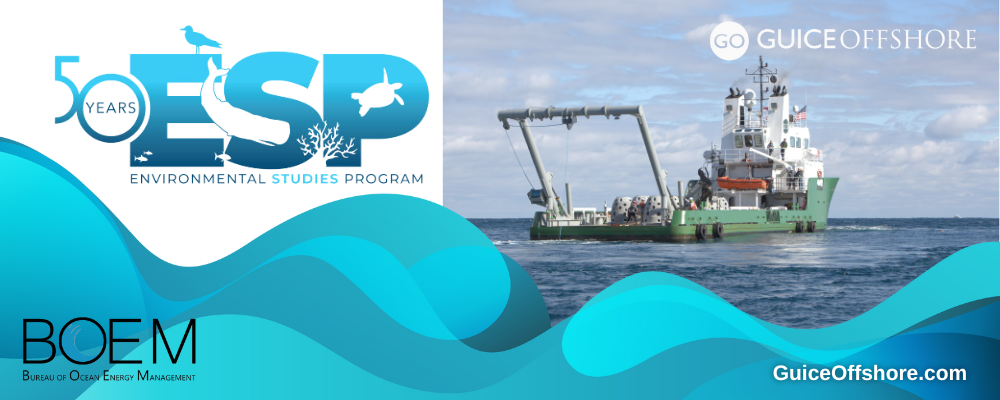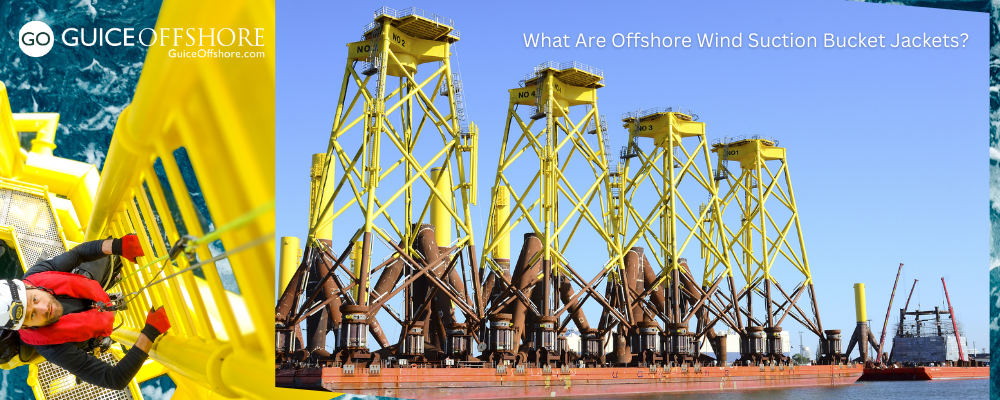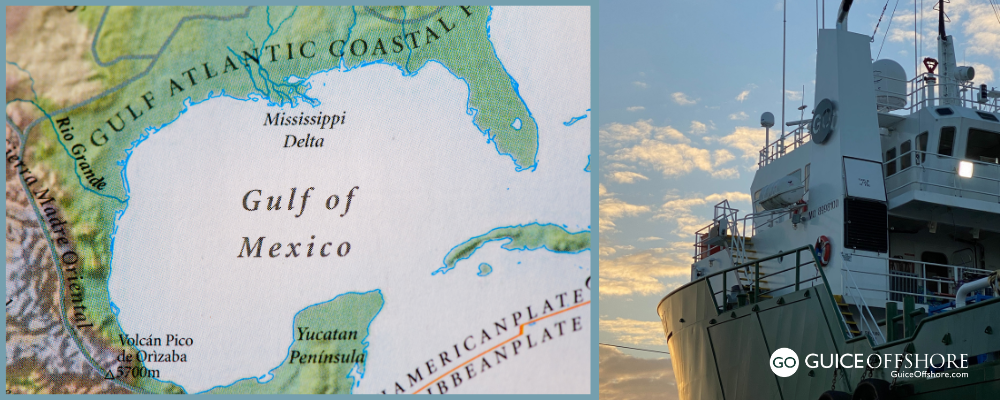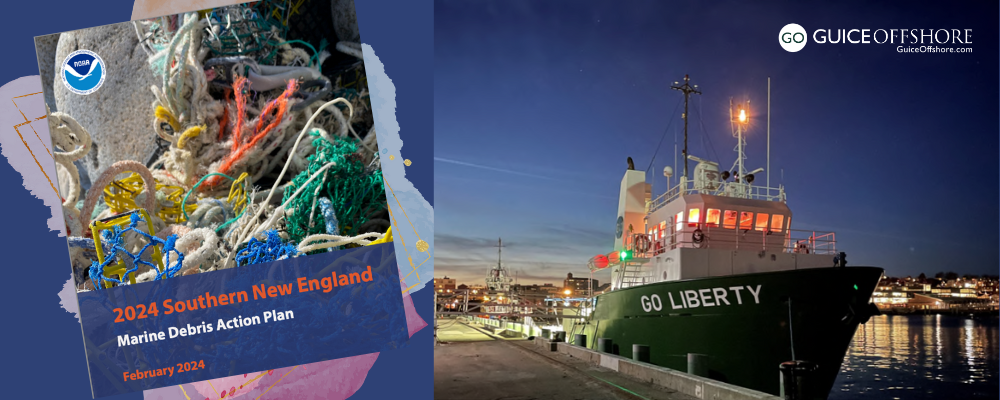Guice Offshore is updating our many offshore ocean science research clients that the U.S. Bureau of Ocean Energy Management (BOEM) is ushering in a new paradigm of scientific information discovery!
On May 1, 2023, the BOEM announced the availability of its new Environmental Studies Program (ESP) Hub, an online platform that will improve public access to the agency’s extensive collection of ocean science research. The ESP Hub replaces the previous geoESPIS search tool.
- To help demonstrate the new ESP Hub and answer questions about it, the BOEM will host a webinar on Tuesday, May 9, 2023, at 1 p.m. (ET). To register, click here: ESP Tutorial Webinar.
To make the transition happen from geoESPIS to the ESP Hub, BOEM gathered user requirements, rebuilt the database and redesigned the public-facing application. Its intuitive user interface and well-organized theme pages are expected to significantly improve accessibility to ESP studies.
Stakeholders with specific information needs, such as program analysts and government scientists, can continue to search and view BOEM ESP reports through the GovInfo Search Tool, hosted by the Government Publishing Office.
BOEM’s Environmental Studies Program (ESP) develops, funds, and manages rigorous scientific research specifically to inform policy decisions on the development of energy and mineral resources on the Outer Continental Shelf (OCS).
Mandated by Section 20 of the Outer Continental Shelf Lands Act, the ESP is an indispensable requirement informing how BOEM manages offshore oil and gas, offshore renewable energy, and the marine minerals program for coastal restoration.
The ESP has provided over $1 billion for research since its inception in 1973. Research covers physical oceanography, atmospheric sciences, biology, protected species, social sciences and economics, submerged cultural resources, environmental fates and effects, oil spills, and more.
The BOEM ESP Hub is the agency’s latest outreach tool to assist environmental studies involving biology, chemistry, physics, and social sciences research on over 50 topical and timely research themes addressing BOEM’s most pressing offshore energy and minerals information needs.
The ESP built the ESP Hub using the ArcGIS Online, making ESP research more accessible through straightforward website navigation and an interactive web map experience.
For each research theme, users can select from regional bookmarks and zoom in on specific areas of interest to find relevant completed ESP research, along with associated reports and publications.
Research themes also are enhanced with related content such as research applications and examples of sample collections and datasets hosted by partner institutions.
BOEM-related Environmental Laws, Regulations, and Executive Orders
The BOEM complies with numerous environmental laws, regulations, and executive orders.
Among the most relevant are:
- National Environmental Policy Act (NEPA)
- Clean Water Act (CWA)
- Coastal Zone Management Act (CZMA)
- Endangered Species Act (ESA)
- Magnuson-Stevens Fishery Conservation and Management Act (FCMA)
- National Historic Preservation Act (NHPA)
The BOEM may serve as the lead federal agency in drafting environmental documents, or as a cooperating agency if another federal agency is serving as lead. The agency also consults with federal and state agencies concerning potential impacts to endangered species and critical habitat, federally managed fish species and essential fish habitat, coastal effects, and historic properties.
BOEM applies the results of its environmental research to improve its environmental assessments and develop meaningful mitigation measures, applying them to help avoid, minimize, or eliminate potentially adverse environmental impacts.
The agency requires monitoring, like protected species observers or pre-and-post bathymetric surveys, to evaluate impacts and design better mitigation measures.
BOEM environmental reviews are typically completed on a project-by-project basis and are available through the agency’s state project pages.
Programmatic and regional environmental reviews and consultations are available on BOEM’s regional page.
BOEM FY2022 Quarters 3 and 4 Environmental Studies Report Now Available
BOEM is pleased to share the BOEM-funded environmental studies report for the third and fourth quarters of Fiscal Year (FY) 2022. Studies included in this report can be accessed through BOEM’s Environmental Studies Program (ESP) Hub and at GovInfo.
The report provides concise descriptions of each study’s purpose, findings and how BOEM will use the research results. The FY22 Q3 and Q4 report covers a range of topics, including river overflood on sea ice and strudel scour in Alaska, predictive modeling of deep coral and hardbottom habitats in the southeast Atlantic, subsistence activities in coastal Louisiana and noise generated from the decommissioning of oil platforms in the Pacific.
BOEM’s Environmental Studies Program develops, funds and manages rigorous scientific research to inform policy decisions regarding development of Outer Continental Shelf energy and mineral resources.
Guice Offshore Vessels Work With Scientific and Government Researchers; Even Documentary Filmmakers
Guice Offshore (“GO”)’s fleet is regularly employed in a variety of support roles including ocean science research and development, and other special projects requiring top-of-the-line, highly dependable offshore support vessels. Our multi-purpose vessel GO America, based in Port Everglades, Florida, operates in conjunction with our partners Global SubDive to support a large array of science and research projects, often utilizing GSD submarines and ROVs. Similarly, partner Ryan Marine is an expert in the field of unmanned vehicle operation, which allows us to provide turnkey AUV and UUV services anywhere in the United States and Caribbean.
Guice Offshore vessels like the 150 ft. DP1 GO Liberty or the 170 ft. DP1 GO Discovery are often used by geotechnical and other types of companies to perform detailed survey activities such as seabed mapping, soil investigations and core sampling. Depending on their equipment installed, our vessels can work in a variety of coastal or offshore environments and water depths. The open cargo deck, ample accommodations, excellent maneuverability and station-keeping, all coupled with an efficient cost of operations, makes the Guice Offshore fleet a consistently reliable choice for those needing an offshore supply vessel or marine transport.
For researchers looking to document their missions, Guice Offshore vessels also support movie and television productions, whose crew needs capable vessels like ours to film scenes, house crews or transport between sets. Our vessels have participated in the filming of feature films movies Deepwater Horizon and Isolation. GO America was also supporting actor in the TV series Cooper’s Treasure Season 2 and Shark Week’s “Tiger Shark King” episode. GO vessels have even been mentioned on national news programs for their participation in life-saving rescues or other offshore recovery missions. With our partners, submarines and ROVs can be provided to assist with underwater cinematography.



